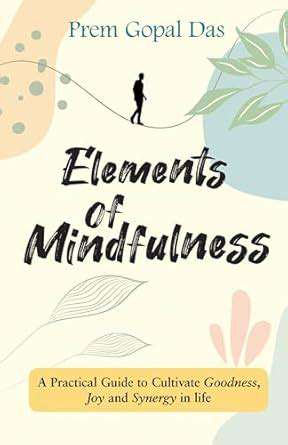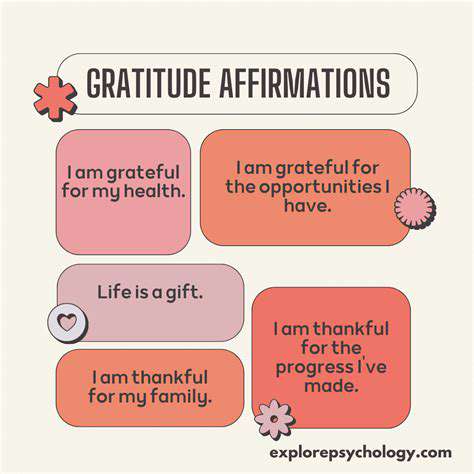Cultivating Sustainable Joy in Everyday Life
Uncovering Your Core Values
Understanding what truly matters to you forms the foundation of lasting happiness. Your personal values act as an internal compass, guiding decisions and shaping experiences. When you recognize whether connection, creativity, learning, or contribution resonates most deeply, you gain clarity about what activities will sustain your spirit. This self-awareness helps craft a life that feels authentic rather than chasing temporary highs.
The process isn't about checking boxes on some idealized list. It's about noticing when you've felt most alive - those moments when time seemed to disappear because you were so engaged. What values were present then? Perhaps it was the satisfaction of solving a complex problem (learning), the warmth of deep conversation (connection), or the thrill of expressing yourself through art (creativity). These clues point toward your core drivers.
Cultivating Joyful Activities
With your values identified, the real magic happens when you translate them into action. Someone who values creativity might schedule weekly painting sessions, while another person prioritizing contribution could volunteer at a local shelter. The key is choosing activities that feel less like obligations and more like natural extensions of who you are.
This alignment creates a positive feedback loop. Each time you engage in value-aligned activities, you reinforce those aspects of yourself. Over time, this builds confidence and makes it easier to say no to things that don't serve your authentic self. The result? A life that feels genuinely fulfilling rather than one filled with shoulds and supposed-tos.
Recognizing and Nurturing Relationships
People often underestimate how much their social circle impacts their happiness. The most nourishing relationships are those where you can be your true self without pretense. These connections provide safe spaces to grow, celebrate successes, and weather challenges. They're the people who get you without needing lengthy explanations.
Creating a Supportive Environment
Your surroundings significantly influence your mood and mindset. A cluttered, chaotic space can drain energy, while an organized, intentional environment can uplift. Beyond physical spaces, consider your digital environment too. Following accounts that inspire rather than compare, choosing media that educates rather than agitates - these small choices accumulate into major impacts on daily joy.
Cultivating Mindfulness for Momentary Joy

Cultivating Present Moment Awareness
Modern life constantly pulls our attention in multiple directions. Mindfulness offers an antidote - the simple yet radical act of being fully present. When you focus completely on sipping your morning coffee or feeling the breeze on your skin, you access joy that's always available but often overlooked.
Beginner practitioners often find the breath helpful as an anchor. The rhythmic pattern of inhalation and exhalation provides a steady focus point when thoughts wander. With practice, this presence extends beyond formal meditation into everyday activities, transforming mundane moments into opportunities for appreciation.
The Benefits of Mindfulness in Daily Life
The ripple effects of regular mindfulness practice touch every area of life. Decision-making improves as you respond rather than react. Relationships deepen through truly listening instead of formulating responses while others speak. Even mundane tasks become more enjoyable when approached with full attention rather than distracted autopilot.
Creating Rituals for Consistent Joyful Moments
Establishing a Foundation for Joyful Rituals
Effective rituals emerge naturally from your personality and preferences. The bookworm's daily reading ritual brings different joy than the athlete's morning run. The common thread is choosing activities that feel restorative rather than depleting. Pay attention to when you feel most energized - those are clues to your ideal rituals.
Designing Your Personal Rituals
Start small with rituals that fit seamlessly into existing routines. A five-minute gratitude practice before bed or a mindful tea break midday can anchor your mood without overwhelming your schedule. The most sustainable rituals are those you look forward to rather than dread.
Incorporating Mindfulness into Your Rituals
Transform ordinary actions into meaningful rituals through presence. Washing dishes becomes sensory meditation when you notice the water's warmth and soap's scent. Walking the dog turns into nature immersion when you observe changing seasons. This shift from doing to being creates space for joy in the most routine activities.
Beyond the External: Nurturing Inner Peace for Lasting Joy
Understanding the Root of Inner Peace
Lasting contentment comes from within, independent of circumstances. This doesn't mean ignoring problems but developing resilience to navigate them without losing your center. Inner peace grows when you stop tying your worth to external validation and instead cultivate self-acceptance.
Embracing Self-Compassion and Acceptance
Treat yourself with the kindness you'd show a dear friend. When mistakes happen (as they will), respond with understanding rather than harsh criticism. This gentle approach paradoxically creates more growth than self-flagellation ever could.
The Power of Gratitude and Positive Affirmations

Cultivating a Positive Mindset
Gratitude isn't about denying difficulties but balancing perspective by also noticing what's working. Keeping a simple gratitude journal - just three things daily - can significantly shift your outlook over time. The practice trains your brain to scan for positives rather than fixating on negatives.
The Impact on Well-being
Science confirms what wisdom traditions have long taught: grateful people experience better sleep, stronger immunity, and greater happiness. These benefits come not from pretending everything's perfect, but from consciously appreciating the good that exists alongside life's challenges.
Read more about Cultivating Sustainable Joy in Everyday Life
Hot Recommendations
- AI Driven Personalized Sleep Training for Chronic Insomnia
- AI Driven Personalization for Sustainable Stress Management
- Your Personalized Guide to Overcoming Limiting Beliefs
- Understanding Gender Dysphoria and Mental Health Support
- The Power of Advocacy: Mental Health Initiatives Reshaping Society
- Building a Personalized Self Compassion Practice for Self Worth
- The Ethics of AI in Mental Wellness: What You Need to Know
- AI Driven Insights into Your Unique Stress Triggers for Personalized Management
- Beyond Awareness: Actionable Mental Health Initiatives for Lasting Impact
- Creating a Personalized Sleep Hygiene Plan for Shift Workers